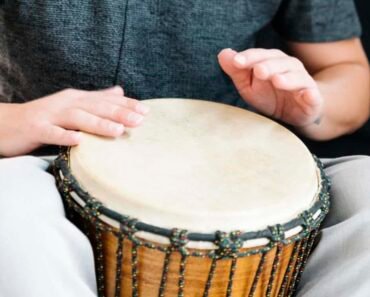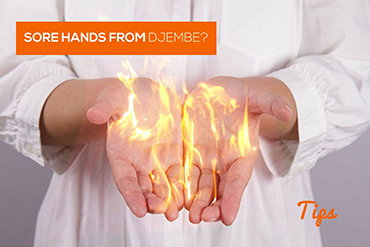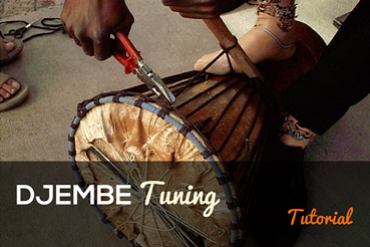| This post may contain affiliate links. If you click on the links and buy, we get a commission. It doesn’t cost you anything. See the full disclaimer here. |
You see this symbol on a lot of djembes. So where does it come from and what does it mean?
The Gye Nyame symbol is a prominent Adinkra symbol originating from the Akan people of Ghana, West Africa. Adinkra symbols are visual representations of concepts and aphorisms, often used in fabric, pottery, and other art forms, with each symbol carrying its own unique meaning and significance.
The Gye Nyame symbol is a symmetrical, intricate design and a complex geometric shape. It’s often interpreted as a stylized form of the human eye. Surrounding this central shape are usually ornate patterns and lines radiating outwards.
The phrase “Gye Nyame” itself is in the Akan language, with “Gye” meaning “except” or “unless,” and “Nyame” meaning “God.” Therefore, the phrase translates to “except God” or “unless God.” The symbol is widely interpreted as representing the omnipotence and supremacy of the Supreme Being, the Creator, or God in the Akan belief system.
Why Is the Symbol on My Djembe?
As for its appearance on djembes, the djembe is a traditional West African drum with origins in the Mande people of present-day Guinea, Mali, and surrounding regions. It’s an integral part of West African musical and cultural traditions, used in various ceremonies, rituals, and celebrations.
The presence of the Gye Nyame symbol on djembes can be seen as a cultural fusion or a reflection of the interconnectedness of different West African cultures and their symbolic systems.
While the Adinkra symbols like Gye Nyame originate from the Akan people in Ghana, the use of djembes extends across various West African cultures.
Therefore, the inclusion of the Gye Nyame symbol on djembes could represent a recognition of the importance of spirituality, divine protection, and reverence for a higher power within the context of the music and rituals for which the djembe is often used. Additionally, it may also symbolize a sense of unity and common cultural heritage among different West African peoples.






